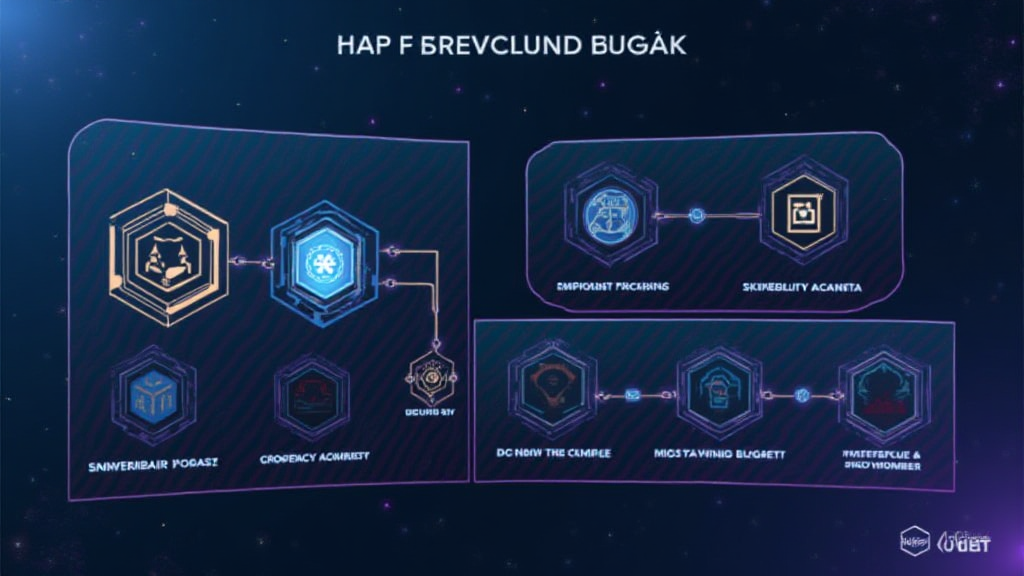Exploring HIBT Vietnam: The Layer-2 Scaling Solution Revolution
As the cryptocurrency market expands rapidly, innovations in technology are crucial to scalability and security. In 2024 alone, billions were lost due to hacks in decentralized finance (DeFi) systems, highlighting the need for strong solutions like HIBT Vietnam, a notable layer-2 scaling solution. Let’s delve deeper to understand how this technology is reshaping the blockchain landscape in Vietnam.
Understanding Layer-2 Scaling Solutions
Layer-2 solutions are protocols built atop existing blockchains (Layer-1) designed to improve transaction processing speeds and lower costs. Imagine a highway that becomes congested; layer-2 solutions act as off-ramps, allowing more vehicles (transactions) to flow smoothly to their destination (confirmation on the blockchain).
Why Does Vietnam Need Layer-2 Solutions?
The Vietnamese market is experiencing significant growth in cryptocurrency adoption. According to a recent report by Statista, the number of cryptocurrency users in Vietnam surged by over 50% in 2023. This rapid influx of users strains the current blockchain infrastructure, necessitating efficient layer-2 solutions like HIBT.

The HIBT Vietnam Advantage
- Increased Transaction Speed: HIBT can process thousands of transactions per second, reducing transaction times significantly.
- Cost Efficiency: With lower fees, users can transact without worrying about overhead costs, making cryptocurrency more accessible.
- Security Enhancement: HIBT employs various security measures, aligning with tiêu chuẩn an ninh blockchain vital for preventing hacks.
The Growth of Cryptocurrencies in Vietnam
Vietnam has emerged as a major player in the cryptocurrency space. According to data from CoinMarketCap, the country’s trading volume has doubled over the last year, attributing this growth to a tech-savvy population eager to embrace new financial technologies.
Furthermore, government interest in blockchain technology is also rising, with projects being explored to improve supply chain transparency and enhance regulatory frameworks. This creates fertile ground for HIBT to thrive.
The Role of Local Regulations
Adhering to local regulations is crucial for the success of cryptocurrency projects. HIBT Vietnam understands this and aims to operate within the legal frameworks established by the Vietnamese government. Collaborating with regulators can help the ecosystem establish trust and legitimacy, paving the way for sustainable growth.
How HIBT Supports the Local Economy
HIBT is not just about technology; it’s also about creating economic opportunities. By facilitating lower-cost transactions, local businesses can benefit from increased sales and wider audiences without exorbitant fees.
Potential Use Cases for HIBT in Vietnam
- Retail Payments: Small businesses can use HIBT for fast and affordable transactions.
- Smart Contract Development: With lower barrier costs, more developers can aim to build decentralized applications.
- Remittances: Migrants can send money home at reduced costs compared to traditional remittance services.
Conclusion: HIBT’s Future in Vietnam
As we look ahead, it is clear that HIBT Vietnam represents a pivotal shift in how blockchain technology can operate in an increasingly digital economy. By addressing scalability, cost-efficiency, and security, HIBT aligns perfectly with the needs of the Vietnamese market.
The overall sentiment around blockchain technology in Vietnam is primed for optimism. With projected growth in user adoption and instances of cryptocurrency being integrated into everyday transactions, HIBT is set to play a critical role in shaping the future of finance in the region.
For more insights into blockchain innovations, be sure to visit HIBT’s official website.
As a cryptocurrency enthusiast, it’s essential to remain updated with the developments in this rapidly evolving landscape. You can explore more about the Vietnamese cryptocurrency tax scenarios in our Vietnam crypto tax guide.
Author: Dr. Mai Nguyen, a well-respected blockchain researcher with over 15 published papers on decentralized technologies and a leader in auditing notable projects.





